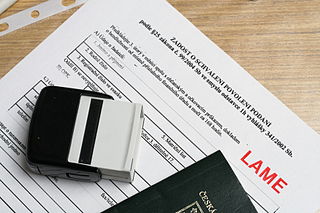On Quora, someone has asked how getting a green card changed people’s lives. There is one response explaining how getting an Employment Authorization Document (EAD) changed his (or her) life:
This is more about how the EAD and AC-21 changed my life.
I moved to the US on an L1-B work visa to work for a major tech firm. I got lowballed on the pay and didn’t realize that till I got here. I couldn’t switch jobs on an L1-B because it is tied to the company you work for unlike an H1-B that can be transferred. The H1-B quotas were filling up within a few days of being open back then. The company filed for my GC in the EB-3 category for which the wait times were estimated at around 15 years (EB-3 NOT rest of world). The company was in constant threat of going out of business or getting bought out. Layoffs happened every few months. I decided to go back to school to get a Masters degree. After getting acceptance letters I learnt that I wasn’t eligible for a student visa because I had applied for the green card. To get a student visa I had to prove no intent to immigrate but I had proven the opposite by filing for the green card.
In July 2007, for some reason all the priority dates became current for a brief instant. This allowed me to get an EAD. With the EAD and using the AC-21 rule I switched jobs to a similar role at another company. For the new job I had been able to negotiate the type of work and the salary. I knew that I didn’t want to go to another company and remain in the EB-3 queue for 15 years. So I had waited till I had 5 years of work experience before switching jobs. The new company filed for my GC, this time in the EB-2 category. I got my GC 2 years later. Freedom.
I think the biggest advantage of the GC is the peace of mind it gives you. You can work in any role without having to worry about being forced to leave the country if things don’t work out.
The absurdity of immigration rules is something I keep pounding on because for most of us, the government is at worst an annoyance. It’s a pain to pay taxes, waste of time to go to the DMV, and torture to face a tax audit. But for most of us, we don’t live in mortal fear of government tearing apart our family, kicking us out of our home, or sacking us from our job because of a simple mistake. It’s only immigrants, and those who wish to immigrate, that put up with this.
Absurdity? Let me count the ways:
- L1B visas bring professional, skilled workers to the US, but force them to work for only one company
- To call converting this to an H1B “difficult” would be an understatement
- In any case, H1B quotas were literally filled within days of the government opening room to apply
- Applying for a green card meant a wait time of 15 years
- Converting the L1B to a student visa was impossible because applying for a green card makes you ineligible
- For reasons totally unknown (possibly a government mistake), this person was suddenly able to convert their L1B to an H1B, get a new job, and get a green card
The author speaks of the “peace of mind” having a green card gives you. My aunt has been a US citizen for going on 2 decades, and today she still speaks of the fear of having her green card taken away before she became a citizen. No citizen would let their government psychologically and emotionally scar them the way we let governments abuse immigrants.
Arbitrary government decisions literally make or break people’s lives, and to what end? How do any of the absurdities laid out above make life better for the typical US citizen? How are these benefits to citizens in any sense proportional to the harm they do to the thousands of people already in the US seeking to migrate legally, or to the millions more who would love to just get into the US?
Any large bureaucracy has collateral damage. I work for a large bank, I know this from experience. But if we held immigration regimes of the world to half the bar the US government holds its banks to (and the US is not known for its strict financial regulatory regime), we would find that few, if any, immigrant bureaucracies pass. As a banker, I would be ashamed to show the above process to a regulator and tell them that is how my company treats our customers’ loans or savings. Why should immigration bureaucrats and legislators get a free pass for playing Kafkaeseque games with people’s jobs and families?
The government form depicted at the top of this post is a fictitious Czech form, created by Petr Novák and available under the Creative Commons Attribution-Share Alike licence.




